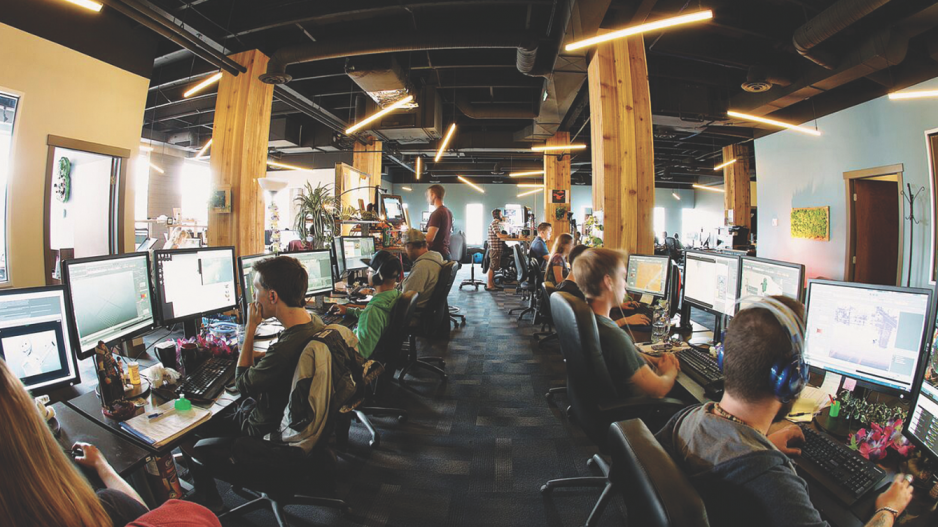Vancouver gets high marks in CBRE Ltd.’s new tech-sector report, which ranks the city fourth in Canada overall but tops when it comes to value for money in terms of talent.
Tech companies represent 30 per cent of demand for downtown office space at the moment, up from 30 years ago when the sector barely figured in a CBRE survey of downtown office tenants. A second survey in 2004 pegged tech tenants at just 8.6 per cent of downtown tenancies, during a time when the sector was primarily located in suburban offices with large floor plates.
The demand figures into a market where office space is at a premium. According to CBRE, 75,000 square feet of space – large in a market where the average tenant has less than 10,000 square feet, notwithstanding deals such as Kabam’s commitment to 105,000 square feet over seven floors in Vancouver Centre 2 – will cost a tenant $3.2 million a year in gross rent. This is more than anywhere else in Canada.
On the plus side, employees come cheap. Vancouver employers will pay the biggest premium in Canada (66.9 per cent) for their top-paid developers compared with the local average annual salary of $71,926. However, the average wage lags behind Edmonton, Saskatoon and St, John’s, where housing also tends to be cheaper. Indeed, tech workers will shell out 20.8 per cent of their pay for a purpose-built rental in Vancouver, more than anywhere else in Canada. Condos will require 28.6 per cent of wages.
The situation makes housing affordability a key issue for attracting new talent to a sector that claims a lack of employees is limiting its growth. However, small companies simply can’t pay what larger companies can.
“[Big] companies tend to pay more than the startup-stage companies,” said Jill Tipping, president and CEO of the BC Tech Association.
Rising demand from large companies drawn by the value proposition Vancouver offers has helped boost tech-sector wages 3.4 per cent from a year ago, Tipping said, citing the recent BC Tech Salary Survey. Wages for some positions have increased as much as 12 per cent, with 96 per cent of companies saying the increases haven’t been enough to attract talent.
Housing help
Just how tough is it to build affordable rental housing in Vancouver?
The usual rules of supply and demand don’t seem to apply to housing, with average rents rising regardless of what happens to vacancies. The latest rental market survey, which Canada Mortgage and Housing Corp. (CMHC) released last week, indicates vacancies in purpose-built rental apartments within Metro Vancouver rose to 1 per cent in 2018, up from 0. per cent last year. Rents increased even faster, however, rising 6.2 per cent to an average of $1,385 a month.
To keep units affordable, Cressey Development Corp. has accessed a $40.2 million long-term loan from CMHC to build, as the news release put it, “115 new rental housing units in Vancouver to help middle-class families have an affordable place to live” in the 1700 block of East 18th Avenue.
The funding is through a $3.75 billion program that offers developers loans for up to 100% of the cost of new construction. The initial term of the loan is 10 years, with amortization periods of up to 50 years. Recipients pay interest from construction through occupancy, with principal and interest due after 12 months of stabilized gross income.
Cressey will collect project rents, more than 60 per cent of which will be equal to or below 30 per cent of the area’s median household income and will remain so for 60 years.
Cressey is the program’s second participant in B.C.; the other is Vancouver Island Investment Corp., which is building 47 units worth $21.1 million in Victoria. Six other projects have been announced east of the Rockies.



